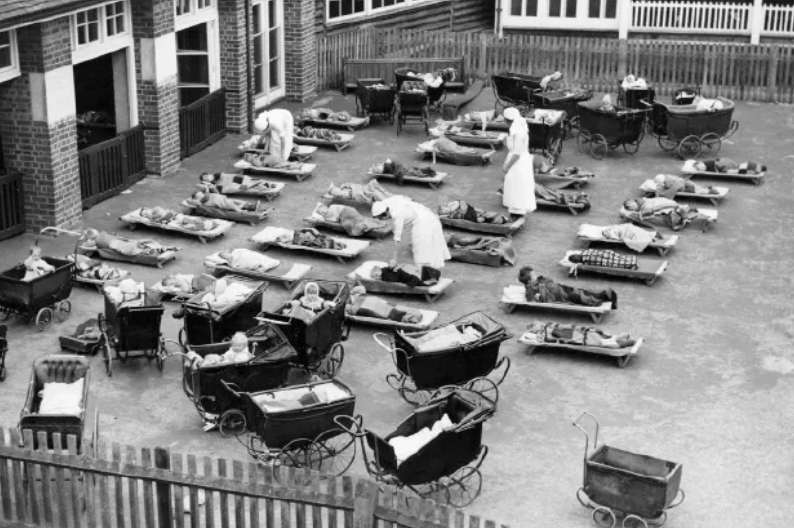My father was handed over a shop counter when he was a day old. His aunt had tried to pass him off to a hospital and couldn’t find any takers so she brought him into a draper’s shop, put him down on the counter and declared she didn’t know what she was going to do with him. The shop assistant piped up to say that her sister didn’t have any children of her own and would quite like a baby. So off she went to fetch her sister, who took him off, tucked inside her cardigan, and that, dear reader, is how he ended up with his mother and father.
I mention this prior to discussing In the Family Way because it’s about illegitimacy and some bits ring true to my father’s experience in Ireland before the war. His natural mother never wanted to see him, for instance, and he declined to pursue her: she had, he declared, been tormented enough. The whole Magdalene Sisters phenomenon wasn’t confined to Catholics; my natural grandfather was a respectable Protestant postmaster.
In the Family Way is about illegitimacy between the first world war and the 1960s. It covers the ground from several angles: the mothers, the children, the natural fathers, those who tried to abort the babies or to give them away and those who kept them, those whose families accepted the new arrival or disguised it as the mother’s sibling or those who hastened to get rid of it — though few were quite as thoroughgoing as the war veteran who drowned his wife’s misbegotten child in a washtub when he returned home.
Jane Robinson has managed to elicit over 100 personal accounts of illegitimacy and it is these letters and interviews that give the book its force — that, and the author’s manifest warm-heartedness. The book is grounded in testimonies from real people — heartbreaking, some of them.
From these various perspectives one thing is apparent, and that is that there was — is — no single right way to deal with the problem of illegitimacy. Often it was manifestly in the child’s interests to stay with the birth mother; in others, it was perfectly plain that the mother would have been better off having the child adopted because she always resented its existence. Some adoptions turned out badly, some brilliantly. What is clear from the testimonies is the fatuity of the feminist slogan for legalising abortion: ‘Every Child a Wanted Child.’ Wanted by whom?
Illegitimacy has been a problem for society right up to our own day, when it is simply irrelevant. It has been variously dealt with over time, though rarely as brutally as in 1913 when the Mental Deficiency Act made it possible to incarcerate young women for moral imbecility on the basis of being unmarried and pregnant with a second or subsequent child. That wasn’t repealed until 1959.
Some of the heroes of the story are the men and women who established — often based on a sense of Christian duty — sanctuaries for unmarried mothers and/or their children. Thomas Coram’s was the first and was a really admirable institution. So were the Dr Barnado’s homes; and the Salvation Army did extraordinary work. One of the most forward-thinking organisations was Lettice Fisher’s National Council for the Unmarried Mother and her Child, the precursor of Gingerbread, which aimed to look after single mothers and to diminish their numbers.
By contrast, Ireland’s Magdalene laundries were really grim. And even good institutions such as Barnado’s engaged in one of the most damaging, systematic endeavours to deal with the problem by shipping children off to the colonies, notably Australia, which resulted, almost inevitably, in abuse.
One unexpected group of the victims of illegitimacy were natural fathers. Many, obviously, were real bastards in that they simply abandoned their girlfriends, but a surprising number appear to have wanted a part in their children’s lives but found that in law and practice they couldn’t.
The book finishes effectively with the legalisation of abortion, which in one way solved the problem and in another didn’t. In the Family Way is about children who were born outside marriage; nowadays most wouldn’t get to be born at all. That’s not necessarily an improvement.
Available from the Spectator Bookshop, £14.99 Tel: 08430 600033







Comments